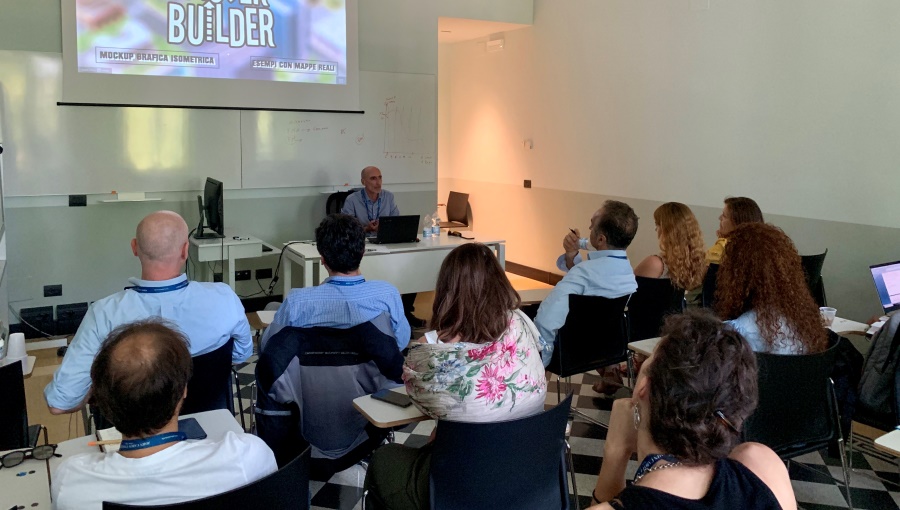Gamification Design: JCU Hosts Short Course
On July 3, 2019, the Center for Professional and Continuing Education at John Cabot University hosted the short course “Gamification Design” with Francesco Lutrario, Innovation and Technology Researcher and Founder of La Sapienza Gamification Lab. Gamification Lab is the University of Rome’s laboratory dedicated to research and teaching in the fields of human-computer Interaction, gamification, and digital simulation. The event featured professionals from various industries and members of the JCU community including students, alumni, staff, and professors.

Gamification Design
The introductory part of the course focused on the definition of gaming, which is the application of the elements, dynamics, and mechanics of a game in a professional context or business situation. Lutrario presented specific case studies developed at La Sapienza Gamification Lab with the help of undergraduate Information Technology students. Among these, special mention goes to PinTurist, a gamification app fostering local tourism, Indovinastorie, a game to test and train memory and soft skills, the Differenziati game, which aims at developing a recycling culture, and an inclusive and interactive game for the Ronald McDonald Foundation for sick children. These practical examples gave participants a hands-on approach including success stories and fail points of each project, allowing Lutrario to show that every game must be tested and verified, as design and theory are not enough.
The second part of the session included a more in-depth analysis of gamification design in the business world through the demonstration of Master Builder, a representation of a construction company through a video game. Starting from this model, Lutrario explained the fundamental elements to design and implement a gaming infrastructure that conveys change, innovation, performance improvement, and shared knowledge into a company or organization. A game should encourage users to start playing, and have the aim of motivating gamers to enter a new virtual sphere where they can get benefits and have fun. Games always need to display explicit rules, clear resources, and tools for participation.
The course aimed at answering the questions: what is gamification, how does it work, why is it successful in the business world, and what are the benefits for a company? The most significant advantages for an organization include the enhancement of socialization and interactions among colleagues, and with customers, the possibility to make reversible decisions, and the opportunity for self-teaching and stress release. The course not only helped participants understand the applications of gamification in the context of corporate functions (marketing, communications, human resources management, and governance), but also gave them a clear picture of the professional roles involved in the creation, evaluation, and management of gamification solutions and digital simulations in today’s job market.





